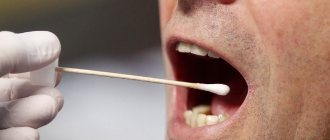The procedure for conducting a medical and social examination
The procedure for referring a citizen for a medical and social examination
1. A citizen is sent for a medical and social examination by an organization providing medical and preventive care, regardless of its organizational and legal form, by the body providing pensions, or by the social protection body.
2. An organization providing medical and preventive care shall refer a citizen for a medical and social examination after carrying out the necessary diagnostic, therapeutic and rehabilitation measures if there is data confirming a persistent impairment of body functions caused by diseases, consequences of injuries or defects.
At the same time, in a referral for a medical and social examination, the form of which is approved by the Ministry of Health and Social Development of the Russian Federation, data on the citizen’s health status are indicated, reflecting the degree of dysfunction of organs and systems, the state of the body’s compensatory capabilities, as well as the results of rehabilitation measures taken.
3. The body providing pensions, as well as the body for social protection of the population, has the right to refer for a medical and social examination a citizen who has signs of disability and needs social protection, if he has medical documents confirming impairment of body functions due to diseases, consequences of injuries or defects.
The form of the corresponding referral for medical and social examination, issued by the body providing pensions or the social protection body, is approved by the Ministry of Health and Social Development of Russia.
4. Organizations providing medical and preventive care, bodies providing pensions, as well as social protection bodies are responsible for the accuracy and completeness of the information specified in the referral for a medical and social examination, in the manner established by the legislation of the Russian Federation.
5. If an organization providing medical and preventive care, a body providing pensions, or a social protection body refuses to send a citizen for a medical and social examination, he is issued a certificate on the basis of which the citizen (his legal representative) has the right to apply at the office yourself.
The procedure for providing public services for conducting a medical and social examination of a citizen
1. The provision of state services for determining disability is carried out in the bureau at the citizen’s place of residence (at the place of stay or the location of the pension file of a disabled person who has left for permanent residence outside the Russian Federation). The provision of this public service can be carried out:
– at home if a citizen cannot come to the bureau (main bureau, Federal Bureau) for health reasons, which is confirmed by the conclusion of the organization providing treatment and preventive care;
– in a hospital where the citizen is undergoing treatment;
- in absentia by decision of the bureau.
2. The provision of public services to determine the degree of loss of professional ability to work is carried out in the bureau at the citizen’s place of residence or at the place of his attachment to a state or municipal organization providing medical and preventive care.
The provision of this public service is carried out at home if a citizen cannot come to the bureau (main bureau) for health reasons, which is confirmed by the conclusion of the organization providing treatment and preventive care, or in the hospital where he is being treated.
3. Bureau specialists study the submitted documents, analyze clinical-functional, social-living, professional-labor, psychological data, conduct an examination of the citizen and, based on the documents and information, survey data, make an expert decision.
4. The decision of the bureau is made by a simple majority of votes of the specialists who conducted the medical and social examination, based on a discussion of the results of the medical and social examination, within a period not exceeding 1 month from the date the citizen (his legal representative) submitted an application for the provision of a public service with all the necessary documents .
The decision is announced to the citizen immediately after its adoption in the presence of all the specialists who conducted the medical and social examination, who, if necessary, provide explanations on it.
5. In cases requiring special types of examination of the recipient of a public service, in order to establish the structure and degree of disability, rehabilitation potential, as well as obtain other additional information, decision-making specialists of the bureau draw up an additional examination program (APP), which is approved by the head of the bureau and is brought to the attention of the citizen (his legal representative) in a form accessible to him.
The PDO may include carrying out the necessary additional examination in a medical or rehabilitation organization, obtaining an opinion from the main bureau, the Federal Bureau, requesting the necessary information, conducting a survey of the conditions and nature of professional activity, the social and living situation of the recipient of public services and other activities.
6. In case of refusal to comply with the PDO, the decision to establish disability is made on the basis of available data, about which a corresponding entry is made in the act of medical and social examination of the citizen.
The refusal of a citizen (his legal representative) to comply with the PDO is confirmed by a statement from the citizen (his legal representative), which is attached to the medical and social examination report.
7. Bureau specialists who conducted a medical and social examination of a citizen recognized as disabled develop an individual rehabilitation or habilitation program for a disabled person (IPRA), and for a citizen under the age of 18 - IPRA for a disabled child. The form of IPRA for a disabled person, IPRA for a disabled child was approved by Order of the Ministry of Labor of Russia dated June 13, 2017 No. 486n (registered with the Ministry of Justice of Russia on July 31, 2017 No. 47579).
8. When establishing the degree of loss of professional ability for a victim as a result of an industrial accident or occupational disease, the victim’s need for medical, social and professional rehabilitation is determined, which is formalized in the form of a victim rehabilitation program (RPP). The PRP form was approved by Decree of the Ministry of Labor of Russia dated July 18, 2001 No. 56.
9. Bureau specialists issue a citizen recognized as disabled (his legal representative) with a certificate confirming the fact of disability, the form of which is approved by order of the Ministry of Health and Social Development of Russia dated November 24, 2010 No. 1031n.
10. Bureau specialists issue a citizen who is not recognized as disabled, at his request, with a certificate of the results of a medical and social examination on the day of applying for this certificate.
11. For a citizen who has a document on temporary disability and is recognized as disabled, the head of the bureau makes a note about the disability group and the date of its establishment in the document on temporary disability.
12. A certificate of the results of establishing the degree of loss of professional ability to work, and, if necessary, a PRP, is issued to the victim against signature.
On the procedure and conditions for establishing disability for citizens and the degree of loss of professional ability for victims
An examination to establish disability is carried out by federal institutions of medical and social examination (ITU Bureau) based on an application from a citizen (his legal representative) and a referral from a health care institution, or a body providing pensions, or a social protection body.
The examination is carried out at the ITU office at the place of residence (stay). The examination can be carried out at home or in absentia if a citizen is unable to appear at the ITU bureau for health reasons, which is confirmed by the conclusion of a health care institution.
In accordance with Federal Law No. 181-FZ dated November 24, 1995 and the “Rules for recognizing a person as disabled,” approved by Decree of the Government of the Russian Federation No. 95 dated February 20, 2006, the basis for recognizing a person as disabled is a combination of three conditions:
a) health impairment with a persistent disorder of body functions caused by diseases, consequences of injuries or defects;
b) limitation of life activity (complete or partial loss by a citizen of the ability or ability to carry out self-service, move independently, navigate, communicate, control one’s behavior, study or engage in work);
c) the need for social protection measures, including rehabilitation.
Depending on the degree of impairment of body functions and limitations in life activity, a person recognized as disabled is assigned a disability group of 1, 2 or 3, and a person under the age of 18 is assigned the category “disabled child.”
A citizen recognized as disabled is issued a certificate confirming the fact of disability, and an individual rehabilitation program for the disabled person. A citizen who is not recognized as disabled, at his request, is issued a certificate of the results of a medical and social examination on the day of submission of the application.
A citizen (his legal representative) can appeal the decision of the bureau to the main bureau within a month on the basis of a written application submitted to the bureau or to the main bureau (450006, Ufa, Ibragimova Boulevard, 61). The decision of the main bureau can be appealed to the Federal Bureau within a month on the basis of an application submitted by the citizen (his legal representative) to the main bureau or to the Federal Bureau (127486, Moscow, Susanina St., 3). Decisions of the bureau, the main bureau, or the Federal Bureau may be appealed by a citizen (his legal representative) to court in the manner established by the legislation of the Russian Federation.
An examination of a person who has suffered health damage as a result of an industrial accident or occupational disease (victim) is carried out at the ITU bureau on the basis of an application from the employer (insured), insurer, recipient of public services (his representative) or a court ruling to conduct a medical and social examination for determining the degree of loss of professional ability to work (in percentage). Documents such as an industrial accident report or an occupational disease report are also required; conclusion of the state labor examination body on the nature and working conditions of the victims that preceded the industrial accident and occupational disease.
When the degree of loss of professional ability to work is established, the victim is given a certificate of the results of establishing the degree of loss of professional ability to work, and when the need for rehabilitation measures is identified, a victim rehabilitation program (RPP) is issued.
The procedure for appealing an expert decision of the bureau on establishing or refusing to establish the degree of loss of professional ability to work is similar to the procedure for appealing a decision on establishing disability.
It is possible to submit an application to appeal the decision of the bureau, the expert staff of the main bureau in electronic form through the portal of state and municipal services: www.gosuslugi.ru
The procedure for the development and implementation of an individual rehabilitation or habilitation program for a disabled person, an individual rehabilitation or habilitation program for a disabled child
An individual rehabilitation or habilitation program for a disabled person and an individual rehabilitation or habilitation program for a disabled child (IPRA for a disabled person, IPRA for a disabled child) is a set of optimal rehabilitation measures for a disabled person, including certain types, forms, volumes, terms and procedures for the implementation of medical, professional and other rehabilitation measures aimed at restoration, compensation of impaired body functions, formation, restoration, compensation of the disabled person’s abilities to perform certain types of activities.
IPRA of a disabled person (IPRA of a disabled child) is mandatory for execution by relevant government bodies, local government bodies, as well as organizations, regardless of organizational, legal forms and forms of ownership.
The IPRA of a disabled person (IPRA of a disabled child) is of a recommendatory nature for a disabled person; he has the right to refuse one or another type, form and volume of rehabilitation measures, as well as the implementation of the program as a whole.
IPRA for a disabled person (IPRA for a disabled child) is developed and issued by federal state institutions of medical and social expertise: the Federal Bureau of Medical and Social Expertise, the main bureaus of medical and social expertise in the constituent entities of the Russian Federation and their branches - bureaus of medical and social expertise in cities and districts under conducting a medical and social examination of a citizen based on a comprehensive assessment of life limitations, rehabilitation potential based on an analysis of his clinical, functional, social, professional, labor and psychological data.
IPRA of a disabled person (IPRA of a disabled child) contains rehabilitation or habilitation measures, technical means of rehabilitation and services provided to a disabled person (disabled child) free of charge in accordance with the federal list of rehabilitation measures of technical means of rehabilitation and services provided to a disabled person, approved by the order of the Government of the Russian Federation dated December 30, 2005 No. 2347-r, rehabilitation or rehabilitation measures, technical means of rehabilitation, goods and services, in the payment of which the disabled person himself or other persons and organizations participate, regardless of organizational and legal forms, as well as recommended goods and services intended for social adaptation and integration of disabled children into society at the expense of funds (part of the funds) of maternal (family) capital.
IPRA for a disabled person (IPRA for a disabled child) is developed for a period corresponding to the term of the established disability group (category “child and disabled”).
If it is necessary to make changes to the IPRA of a disabled person (IPRA of a disabled child), a new referral for medical and social examination is issued and a new IPRA of a disabled person (IPRA of a disabled child) is drawn up.
If it is necessary to make corrections to the IPRA of a disabled person (IPRA of a disabled child) in connection with a change in the anthropometric data of a disabled person (disabled child), the need to clarify the characteristics of previously recommended types of rehabilitation or habilitation measures for a disabled person (disabled child), at his request or at the request of a legal or an authorized representative of a disabled person (disabled child), instead of the previously issued one, a new IPRA of a disabled person (IPRA of a disabled child) is drawn up and issued without issuing a new referral for medical and social examination.
If it is necessary to make corrections to the IPRA of a disabled person (IPRA of a disabled child) in connection with a change in the personal data of the disabled person (disabled child) as well as in order to eliminate technical errors (typo, typo, grammatical, arithmetic error or similar error) to the disabled person (disabled child) upon his application or upon the application of a legal or authorized representative of a disabled person (disabled child), an appeal from organizations providing social protection measures to a disabled person (disabled child), by order of the head of the main bureau (Federal Bureau), a new IPRA for a disabled person (IPRA) is drawn up and issued instead of the previously issued one disabled child) without filing a new referral for medical and social examination and conducting an additional examination of the disabled person (disabled child).
In case of disagreement with the decision of the bureau (main bureau, Federal Bureau) on recommended rehabilitation or habilitation measures, technical means of rehabilitation or services provided to the disabled person, the disabled person (disabled child), the legal or authorized representative of the disabled person (disabled child) has the right to appeal this decision in the manner prescribed by the Rules for recognizing a person as disabled, approved by Decree of the Government of the Russian Federation of February 20, 2006 N 95 “On the procedure and conditions for recognizing a person as disabled” (Collected Legislation of the Russian Federation, 2006, N 9, Art. 1018; 2008, N 15 , Art. 1554; 2010, N 2, Art. 184; 2012, N 7, Art. 870; N 17, Art. 1992; N 37, Art. 5002; 2015, No. 33, Art. 4836; 2016, No. 35 , art. 5320)
When implementing IPRA for a disabled person (IPRA for a disabled child), consistency, complexity and continuity in the implementation of rehabilitation or habilitation measures, dynamic observation and control over the effectiveness of the measures taken are ensured.
The federal state institution of medical and social expertise sends an extract from the IPRA of a disabled person (IPRA of a disabled child) (hereinafter referred to as the Extract) to the executive authority of the constituent entity of the Russian Federation in the relevant field of activity, regional branches of the Social Insurance Fund of the Russian Federation at the place of residence of the disabled person (disabled child) ), determined in accordance with its IPRA by the performers of rehabilitation or habilitation measures.
The extract is sent to the executive authority (regional branch of the Fund), determined by the executor in accordance with the rehabilitation or habilitation measures specified therein, no later than 3 working days from the date of issuance of the IPRA of a disabled person (IPRA of a disabled child) using a unified system of interdepartmental electronic interaction and connected to it regional systems of interdepartmental electronic interaction, and in the absence of access to this system - on paper in compliance with the requirements of the legislation of the Russian Federation on personal data.
Executive authorities and regional branches of the Foundation, within 3 days from the date of receipt of the Extract, in order to implement the rehabilitation or habilitation measures provided for by the IPRA of a disabled child (IPRA of a disabled child), organize work to develop a list of activities, indicating the performers and the deadlines for the implementation of the activities.
Information on the implementation of activities provided for by the IPRA of a disabled person (IPRA of a disabled child) is submitted by the executive authority (regional branch of the Fund) to the bureau (main bureau, Federal Bureau) no later than one month before the expiration of the IPRA of a disabled person (IPRA of a disabled child).
The assessment of the results of rehabilitation activities is carried out by specialists of the bureau (main bureau, Federal Bureau) during the next medical and social examination of a disabled person (disabled child) and is entered into the protocol of the medical and social examination of a citizen in the federal state institution of medical and social examination.
Rehabilitation program for victims of industrial accidents and occupational diseases
The insured is obliged to comply with recommendations for medical, social and professional rehabilitation within the time limits established by the rehabilitation program for victims of an industrial accident and occupational disease (hereinafter referred to as the PRP), undergo medical examinations and re-examinations within the time limits established by medical and social examination institutions, as well as direction of the insurer (clause 2.3 of Article 16 of the Federal Law of July 24, 1998 No. 125-FZ “On compulsory social insurance against industrial accidents and occupational diseases”).
The conclusion of the medical and social examination institution on the need for medical, social and professional rehabilitation is drawn up taking into account the potential capabilities and abilities of the victim to carry out professional, household and social activities and is formalized in the form of a rehabilitation program for the victim as a result of an industrial accident and occupational disease (paragraph 21 “ Rules for determining the degree of loss of professional ability to work as a result of industrial accidents and occupational diseases”, approved by Decree of the Government of the Russian Federation of October 16, 2000 No. 789.
The form of the rehabilitation program for a person injured as a result of an industrial accident or occupational disease was approved by Decree of the Ministry of Labor and Social Development of the Russian Federation dated July 18, 2001 No. 56.
The procedure for appealing a decision of a medical and social examination institution
1. The recipient of a public service (his legal representative) may appeal the bureau’s decision to the main bureau within a month on the basis of an application submitted to the bureau that conducted the medical and social examination, or to the main bureau.
2. The bureau that conducted the medical and social examination of the citizen, within 3 days from the date of receipt of the application to appeal the bureau’s decision, sends it with all available documents to the main bureau.
3. The Main Bureau, no later than 1 month from the date of receipt of the application to appeal the decision of the bureau, conducts a medical and social examination of the recipient of the public service and, based on the results obtained, makes an appropriate decision.
4. In the event that the recipient of a public service (his legal representative) appeals against the decision of the main bureau, the chief expert in medical and social examination for the relevant constituent entity of the Russian Federation, the head-chief expert in medical and social examination, with the consent of the recipient of the public service (his legal representative), may order carrying out his medical and social examination by another group of specialists from the main bureau.
5. The recipient of a public service (his legal representative) may appeal the decision of the main bureau to the Federal Bureau within a month on the basis of an application submitted to the main bureau, which conducted the medical and social examination, or to the Federal Bureau.
6. The Federal Bureau, no later than 1 month from the date of receipt of the application to appeal the decision of the main bureau, conducts a medical and social examination of the recipient of the public service and, based on the results obtained, makes an appropriate decision.
7. Decisions of the bureau, the main bureau, the Federal Bureau can be appealed to the court by the recipient of the state service (his legal representative) in the manner established by the legislation of the Russian Federation.
What is ITU on disability
A commission consisting of competent specialists, based on research and the results obtained, makes a decision on assigning disability to a citizen and establishes the appropriate group.
Medical and social examination (MSE) determines not only the state of physical health, but also the social status of a citizen. The commission includes not only doctors, but also psychologists.
Medical examination for disability solves the following problems:
- identifies the degree of disability;
- determines the need for citizen support;
- recommends rehabilitation programs taking into account the individual characteristics and approach to the condition of a person with disabilities.
Law
The legislation regulates the ITU procedure with the main acts:
- Federal Law “On the Protection of Disabled Persons in the Russian Federation”;
- Resolution No. 95 of February 20, 2006;
- Directives and orders from relevant departments.
Who is entitled to
Every citizen of retirement age, in the event of illnesses that limit his physical and social activity, can undergo a commission and receive disability. The opinion that a pensioner cannot count on state support in the event of such circumstances is unfounded.
Diseases that contribute to obtaining this status include:
- disturbances in the functioning of the brain and heart;
- detection of cancer;
- diabetes;
- health conditions that limit movement;
- visual and hearing impairments.
Having passed the ITU and received disability, a pensioner is entitled to the following support measures from the state:
- purchasing medicines at a reduced price;
- material compensation;
- benefits for using transport, paying for utilities.
For some categories of older people, obtaining disabled status is necessary and helps them maintain a normal standard of living.
Where is ITU held?
An examination is carried out in specialized organizations - the bureau of medical and social examinations. In regions, especially rural settlements, the bureau receives residents of several districts at once.
The ITU Main Bureau oversees the activities of the regional offices. It receives and considers citizens' appeals regarding inappropriate decisions of subordinate commissions.
The entire structure is controlled by the federal level bureau ITU, which is located in Moscow.
ITU procedure
The examination is a consultation of medical specialists in various fields who get acquainted with the submitted documents and ask additional clarifying questions regarding the state of health. It is also necessary to provide information about family composition, income and other living conditions of a person.
After receiving this information, the commission makes a decision on recognizing or not recognizing the citizen as disabled. This decision is communicated to the pensioner on the same day.
Patients who are unable to move are examined at home.
Conditions for recognition as disabled
It is regulated at the legislative level that bureau employees are obliged to notify the citizen who submitted the application about the procedure for recognizing him as a disabled person and provide appropriate explanations on all issues that arise.
Criteria for assigning disabled status:
- loss of health with obvious impairment of body functions;
- loss of normal life activities and the ability to independently care for oneself, move, influence behavior and work;
- the need for rehabilitation actions and social protection measures.
Duration of disability
Disability is established for the following periods:
- 1 group – 2 years;
- 2.3 groups – for 1 year;
- If the disabled person is a child, it is set for 1, 2, 5 years or up to 18 years.
In some cases, an MSEC certificate of disability is issued without a specific period.
Reasons for re-examination
If the commission cannot come to a decision, the medical and social examination is re-appointed. In this case, additional documents may be required to make a final verdict.
Elena Smirnova
Pension lawyer, ready to answer your questions.
Ask me a question
It should be borne in mind that systematic re-examination may become a reason for removing disability or changing the group category. Also, disability can be lifted if there are compelling reasons for this.






